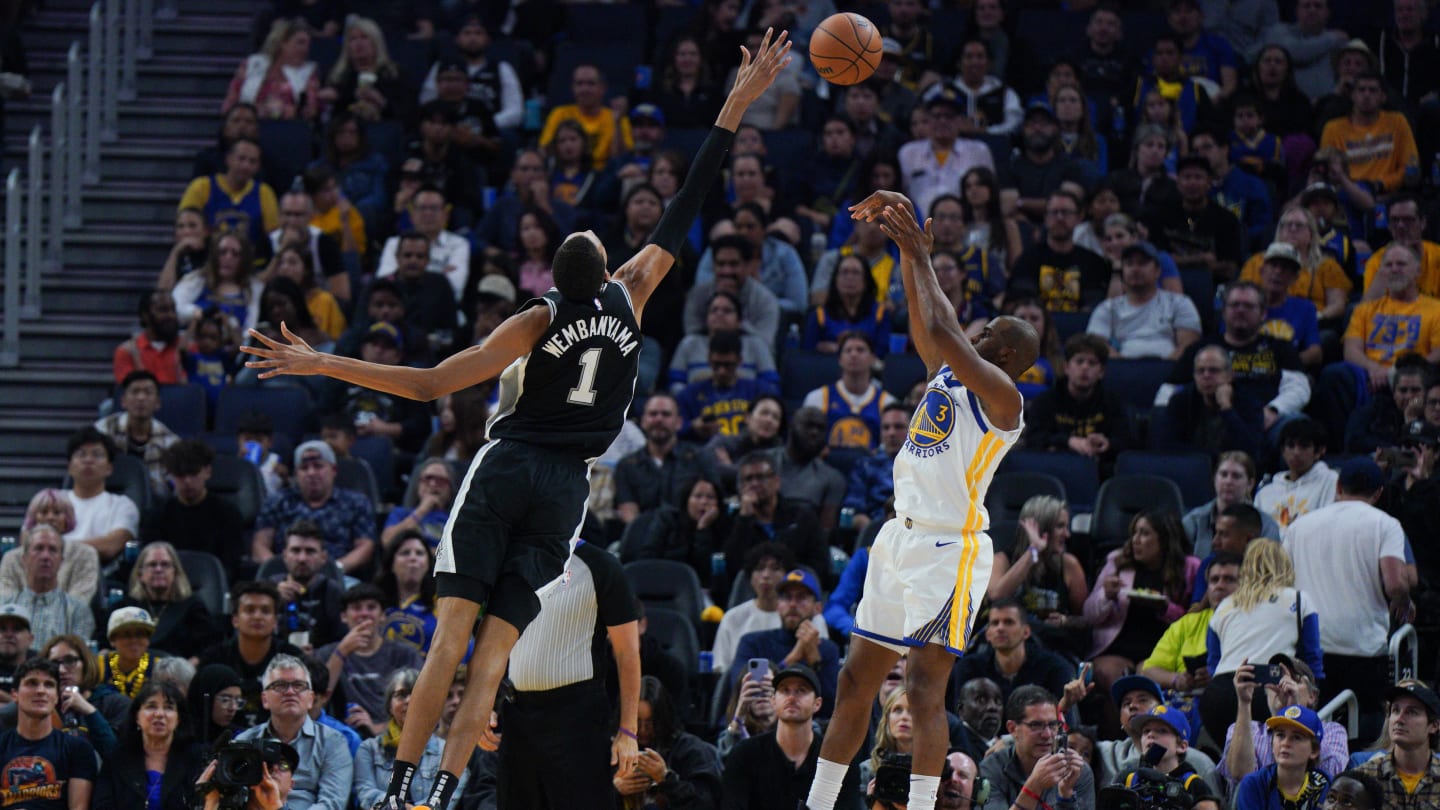Assessing the Spurs’ Surprising Signing of Chris Paul: Detailed Analysis

Surprise, Spurs fans – on the first night of the 2024 Free Agency, Chris Haynes of TNT broke the news that Chris Paul, a 19-year NBA veteran and 12-time All-Star point guard, will sign with the San Antonio Spurs for the 2024-25 season. This move came after Paul was released by the Golden State Warriors earlier in the day, and according to ESPN’s Adrian Wojnarowski, his new contract was confirmed to be a one-year, $11 million deal (structure pending).
After enduring a lengthy point guard experiment with Jeremy Sochan and finishing the season with a very good, if flawed, Tre Jones at the helm, Spurs players and fans alike should be pleased to see a veteran player on the way. Paul’s presence will undoubtedly have short- and long-term implications, so without wasting any more time, here’s our assessment of the signing.
For the purposes of this exercise, we’ll assume Paul is an immediate starter. He’ll easily be the most experienced player on the roster next season, and given the general instability at the point guard position in San Antonio since the Dejounte Murray trade, it’s reasonable to assume everyone involved will value that experience from day one. In that case, a starting lineup of Paul, Devin Vassell, Stephon Castle, Jeremy Sochan, and Victor Wembanyama at positions 1-5 is very likely.
Chris Paul is neither Trae Young nor Rob Dillingham, but that doesn’t mean Spurs fans should scoff at this new addition. From a purely basketball perspective, there are significant benefits to putting Paul alongside the Spurs’ four most recent lottery picks. Wembanyama now has a very experienced pick-and-roll (and lob) partner, Vassell will share the court with another efficient shooter, and Sochan’s talent as an off-ball cutter will only become more apparent.
Those worried about Castle’s role in this lineup need not worry. Castle made it clear leading up to the draft that he wants to play as a starting point guard in the league at some point. One of the most common (and valid) concerns among draft analysts leading up to draft day was that Castle is not ready for such a large on-ball role. With Paul now in the lineup, Castle can play an off-ball/secondary ball-handling role that is almost identical to what he played in his only season at UConn. In the meantime, Paul can slowly show him the ropes when it comes to playing a point guard at the NBA level.
In short: Paul will all better. He brings the efficient complementary shooting that the roster as a whole desperately needs, a tremendous basketball IQ and a sense of direction that will do wonders for one of the youngest rosters in the league. While many of the Spurs’ young players have been thrown into the proverbial fire to grow over the past few seasons, Paul’s signing will now allow these young players to play to their strengths much more.
In addition, a role as a backup for Tre Jones in the coming months may be something that is glossed over, but this could have an equally positive impact on the team. When Jones was off the bench last season, that role was mostly filled by Malaki Branham – the very not a point guard – along with some minutes of playing time from Blake Wesley and Devonte’ Graham. Just as Paul benefits the other starters, Jones will serve as a much-needed bench pioneer and benefit almost everyone on the bench.
And finally, this is just as good an acquisition from a financial perspective. A short-term (one-year) deal worth around $11 million offers plenty of opportunity and flexibility for the future without much downside. Paul’s contract is already considered an expiring contract at the trade deadline, meaning the team can look for trades that offer more draft capital in return if they so choose. Paul’s contract could also be used as outgoing salary in a larger deal if the team chooses to look for an impact player in a consideration package.
On the other hand, if Paul’s season goes well, the Spurs could simply sign him to another short-term deal and resume the season. While the Spurs want to move in the right direction sooner rather than later, there won’t necessarily be a huge rush to make a major improvement unless a good opportunity presents itself on the market. In other words, the Spurs won’t trade Paul away for the sake of trade, and they won’t let him leave as a free agent if there’s mutual interest in him returning.
So if you’re asking what’s most important, it’s that the Spurs made a low-risk, high-reward deal. Best case scenario, Paul will allow the Spurs’ younger players to play to their strengths better than they’ve been able to in recent seasons, while also giving Castle ample time to develop point guard skills and generally good habits.
The Spurs essentially acquired a well-matched player without spending draft capital or signing an expensive and/or long-term contract. This is a huge win in almost every way imaginable.



